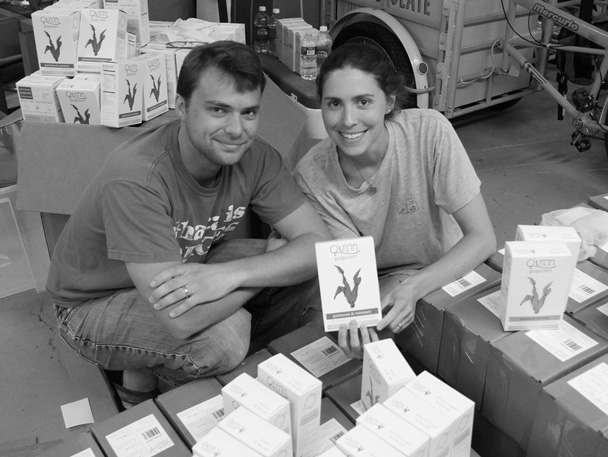From a squeaky office chair in his Boulder, Colorado, bedroom, Mario Lurig looks into his Webcam, takes a short breath, and begins: “Hey Kickstarter, my name is Mario, and I want to tell you about chocolate dice.”
Over the next minute and a half, he walks a fine line between sales pitch and casual Skype chat. He talks directly to the camera about wanting to raise enough money ($950) to buy the materials necessary to mold and make edible versions of gaming dice—the 4-, 12-, and 16-sided types used in Dungeons & Dragons and other role-playing games currently enjoying a renaissance.
He put his pitch up on the Web site Kickstarter, a leader in the crowdfunding movement, in which artists, designers, musicians, filmmakers, entrepreneurs, and really anybody with a project and a plan can go public, seeking out enough money to turn their ideas into realities. Funds come from the general public, and in exchange for making contributions through Kickstarter, supporters are offered rewards that are meant to be commensurate with their donations; these can range from a postcard thanking them for their support, to a gift-boxed set of chocolate dice, to a tour of the Iberian Ham Trail (for committing $10,000 toward the construction of North Mountain Pastures’ charcuterie aging room).
Since its founding in 2009, more than a million people have contributed to Kickstarter campaigns. In 2011 alone, just over 27,000 projects drew a hefty $99,344,382 in pledges. Pledged money, though, is only collected if a project reaches a targeted funding level, meaning that if you back a project that only gets halfway to funding, no money is collected. Of those more than 27,000 projects, just under half met their funding goals, collecting something in the area of $84 million. This is where the proverbial wisdom of crowds comes into play: People tend to bet on winners.
The food category is a small but vibrant piece of the Kickstarter project mix; 241 food- and beverage-related projects brought in just over $2.8 million from 30,682 backers in 2011. The spread of funding requests reflects the general culinary zeitgeist—keyword searches turn up 118 beer projects, 80 tagged “vegan,” and 74 tagged “foodtruck.” And then, of course, there is the great common denominator, cupcakes, with 50 listings, including 8 vegan cupcake projects, 6 cupcake trucks, and 1 beer cupcake.
Food and drink projects, though, can be a tough sell; if you’re trying to get supporters for a book, film, or music idea, it’s easy to give potential patrons a sample of what you have to offer. Food, though, requires a greater leap of faith. There are no little tastes on the Internet, and as is often the case with new, small ventures, word of mouth is scarce. People who contribute are buying into not just the project but also the story behind it, and the process of bringing it to life. “Backers get to watch each chapter unfold and enjoy behind-the-scenes access to the process, which can foster really strong emotional connections to the project,” Kickstarter director of communications Justin Kazmark says. “For the creator, running a project is as much about engaging with that community of supporters as it is about finding funding.”
Fair or not, the creator’s ability to present the story of a project in a compelling way is one of the major factors that separate the successes from the duds. It seems that not everyone who goes to Kickstarter for funding understands that the medium demands—for better or worse—entrepreneurialism as entertainment. Mario Lurig, the chocolate dice maker, remembers one doomed aspirant who presented her plan to open a candy store to him for analysis. “It was a one-paragraph description—no video—and the rewards didn’t connect with anybody. There was no plan. It was simply, ‘I would like your money, because I want to have a candy store.’ It’s like me putting up a project, saying: ‘I’d like to be an astronaut. Who wants to pay for me to go to space camp?’”



 Pinterest
Pinterest


